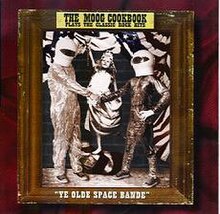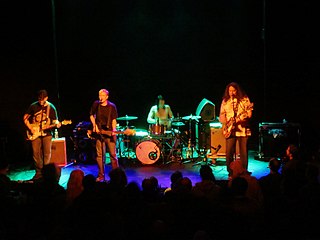
Meat Puppets are an American rock band formed in January 1980 in Phoenix, Arizona. The group's original lineup was Curt Kirkwood (guitar/vocals), his brother Cris Kirkwood, and Derrick Bostrom (drums). The Kirkwood brothers met Bostrom while attending Brophy Prep High School in Phoenix. The three then moved to Tempe, Arizona, where the Kirkwood brothers purchased two adjacent houses, one of which had a shed in the back where they regularly practiced.
Synth-pop is a music genre that first became prominent in the late 1970s and features the synthesizer as the dominant musical instrument. It was prefigured in the 1960s and early 1970s by the use of synthesizers in progressive rock, electronic, art rock, disco, and particularly the Krautrock of bands like Kraftwerk. It arose as a distinct genre in Japan and the United Kingdom in the post-punk era as part of the new wave movement of the late 1970s.

Daft Punk were a French electronic music duo formed in 1993 in Paris by Thomas Bangalter and Guy-Manuel de Homem-Christo. They achieved early popularity in the late 1990s as part of the French house movement, combining elements of house music with funk, disco, techno, rock and synth-pop. They are regarded as one of the most influential acts in dance music.
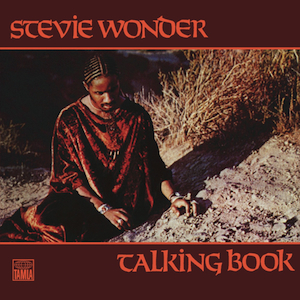
Talking Book is the fifteenth studio album by American singer, songwriter, and musician Stevie Wonder, released on October 27, 1972, by Tamla, a subsidiary of Motown Records. This album and Music of My Mind, released earlier the same year, are generally considered to mark the start of Wonder's "classic period". The sound of the album is sharply defined by Wonder's use of keyboards and synthesizers.

The Moog Cookbook was an American electronic duo consisting of Meco Eno and Uli Nomi. The project was a parody of and tribute to the novelty Moog records of the late 1960s and early 1970s, which featured cover versions of popular songs using the then-new Moog synthesizer.

The Moog Cookbook is the debut record by the American electronic music duo the Moog Cookbook, released in 1996. It consists of ten cover versions of alternative rock tracks performed using Moog synthesizers and other analog synthesizers. The album was critically acclaimed and became an underground hit. In 1997, it was followed by the similar Ye Olde Space Bande.
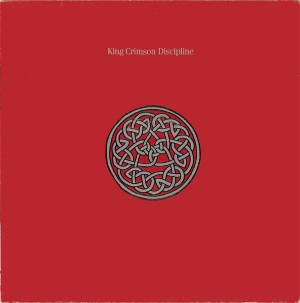
Discipline is the eighth studio album by English progressive rock band King Crimson, released on 2 October 1981 by E.G. Records in the United Kingdom and by Warner Bros. Records in the United States.
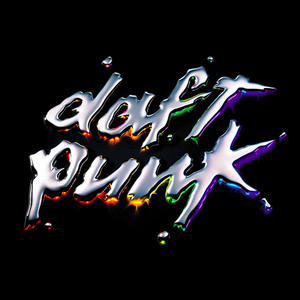
Discovery is the second studio album by the French electronic music duo Daft Punk, released on 12 March 2001 by Virgin Records. It marked a shift from the Chicago house of their first album, Homework (1997), to a house style more heavily inspired by disco, post-disco, garage house, and R&B. Thomas Bangalter of Daft Punk described Discovery as an exploration of song structures, musical forms and childhood nostalgia, compared to the "raw" electronic music of Homework.
Brian Kehew is an American musician and record producer. He is a member of The Moog Cookbook and co-author of the Recording The Beatles book, an in-depth look at the Beatles' studio approach.

"Robot Rock" is the lead single from Daft Punk's third studio album Human After All. The single was released initially on 11 April 2005 with a music video, directed by and featuring the duo, preceding the single's release. While the single reached a moderately high chart position, many critics found the song overly repetitive when compared to songs from their other studio albums at the time. It features a sample of "Release the Beast" performed by Breakwater.

Roger Joseph Manning Jr. is an American keyboardist, singer, and songwriter who co-founded the bands Jellyfish, the Moog Cookbook, Imperial Drag, and The Lickerish Quartet. He has also spent several years as a member of Beck's backing band, contributed to several recordings by the band Air, and toured or recorded with acts such as Jay-Z, Blink 182, and Johnny Cash. In 2005, he released his first solo record, Solid State Warrior, followed with Robo-Sapiens, Catnip Dynamite (2008), and Glamping (2018). He is usually credited by his full name to avoid confusion with the folk musician Roger Manning.
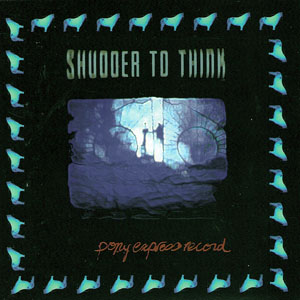
Pony Express Record is the fifth studio album by American post-hardcore band Shudder to Think, released in 1994 by Epic Records. It was the first album of the band to feature guitarist Nathan Larson and drummer Adam Wade, after the departure of founding members Chris Matthews and Mike Russell. The album saw the band attempting to craft a unique sound. According to Wade, "high up on our agenda it was like, 'No matter what, we cannot sound like anybody else.' We didn’t want to be Fugazi or Soundgarden—though those influences were there." Larson recalls of the album: "We definitely made our strangest record to date. We really did want to have a pop hit, but we made a really weird record. Get Your Goat is brighter and poppier. Pony Express is velvety and dark".

The use of electronic music technology in rock music coincided with the practical availability of electronic musical instruments and the genre's emergence as a distinct style. Rock music has been highly dependent on technological developments, particularly the invention and refinement of the synthesizer, the development of the MIDI digital format and computer technology.

L is the second studio album by British progressive rock musician Steve Hillage, released by Virgin Records in September 1976.
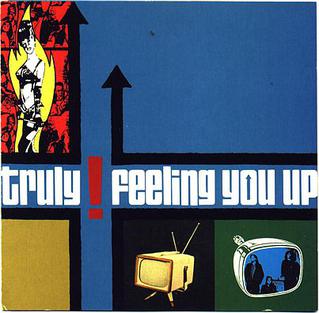
Feeling You Up is the second studio album by American rock band Truly, recorded from 1995 to 1997 and released November 1997 on 12" vinyl and CD. "It's On Your Face" was used in its entirety in Francis Ford Coppola's TV series First Wave episode 16 "The Undesirables".
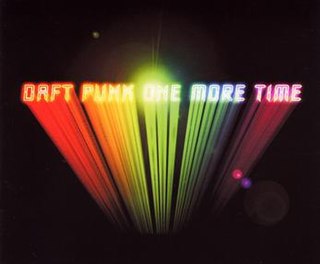
"One More Time" is a song by the French electronic music duo Daft Punk, released as the lead single from their second studio album, Discovery (2001), on 13 November 2000. It was shipped to radio in January 2001. It is a French house song featuring an auto-tuned vocal performance by Romanthony and a sample of "More Spell on You" by Eddie Johns. The music video forms part of the 2003 anime film Interstella 5555: The 5tory of the 5ecret 5tar 5ystem. "One More Time" reached number one on the French Singles Chart, number two on the UK Singles Chart, and number 61 on the US Billboard Hot 100.
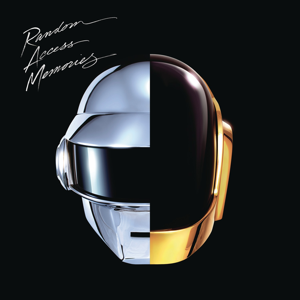
Random Access Memories is the fourth and final studio album by the French electronic music duo Daft Punk, released on 17 May 2013 through Columbia Records. It pays tribute to late 1970s and early 1980s American music, particularly from Los Angeles. This theme is reflected in the packaging and promotional campaign, which included billboards, television advertisements and a web series. Recording sessions took place from 2008 to 2012 at Henson, Conway and Capitol Studios in California, Electric Lady Studios in New York City, and Gang Recording Studio in Paris, France.

"Doin' It Right" is a song written and performed by French electronic music duo Daft Punk and American musician Panda Bear of the band Animal Collective. It is a track on Daft Punk's fourth studio album Random Access Memories (2013), and was the last to be recorded for the album. The song was distributed to American alternative radio stations on 3 September 2013 as the third single from Random Access Memories. Prior to this, it appeared on record charts in France, the United States and the United Kingdom due to digital downloads of the album. "Doin' It Right" received a positive critical reception, with some reviewers opining it as the group's best work out of the entire LP.
"Giorgio by Moroder" is a song written and recorded by French electronic music duo Daft Punk for their fourth studio album, Random Access Memories (2013). It is the third track on the album. The song features a monologue by Italian musician Giorgio Moroder, who speaks about his early life and musical career. "Giorgio by Moroder" charted in France and Sweden due to downloads of the album.
